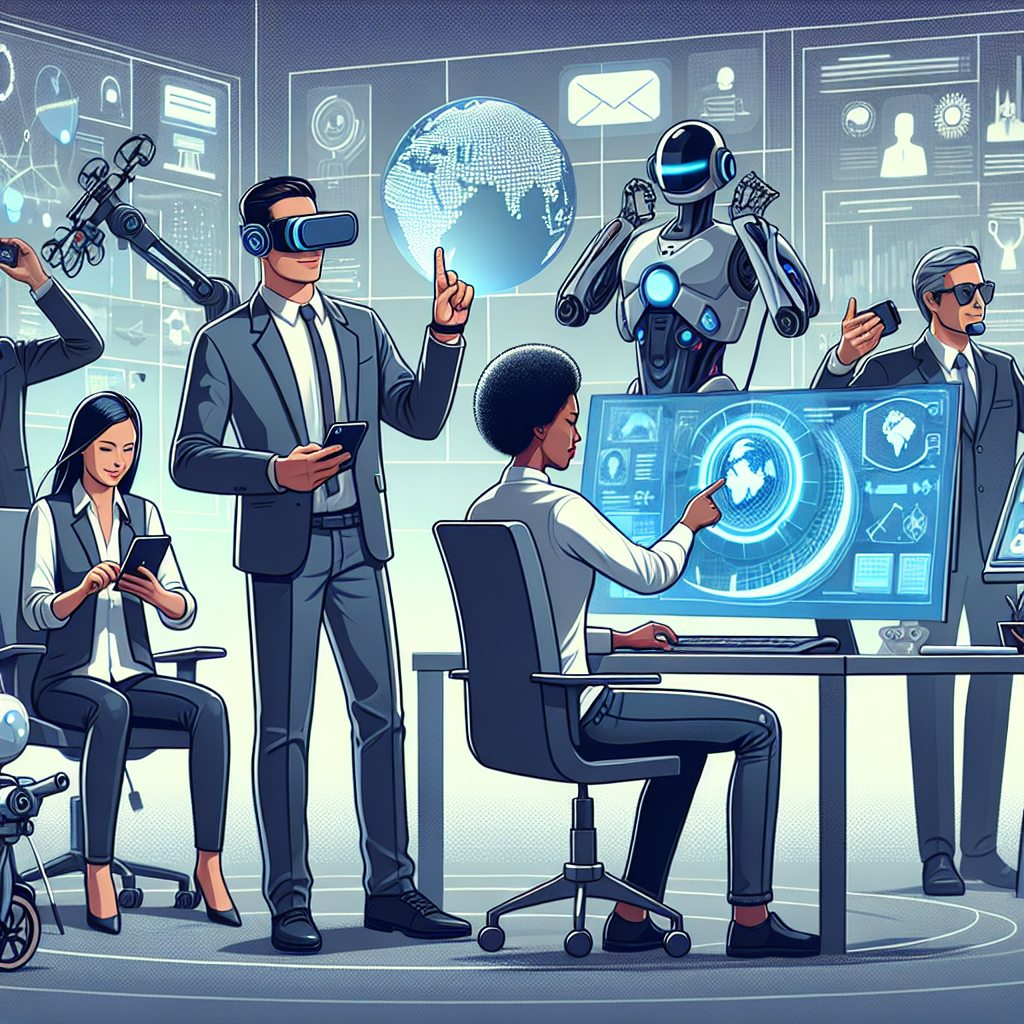Technological Advancements Impacting Future Career Paths
As the world evolves, so does the job market. Technological advancements have a profound effect on the landscape of career paths, forging new roles while rendering others obsolete. For those entering the workforce or considering a career pivot, understanding how technology influences future career trends is paramount. In this article, we’ll explore significant technological trends and their impacts on the job market, helping you to navigate the future of work more effectively.
The Automation Revolution
Automation is a key driver of change in today’s job market. With the rise of robotics, artificial intelligence (AI), and machine learning, many tasks that were once performed by humans are now being automated. This shift is reshaping the landscape of available jobs and the skills required to perform them.
Jobs on the Decline
Routine, repetitive jobs are most at risk of being automated. For instance, factory work that involves assembly lines, and data entry positions that require inputting information into computer systems, are increasingly performed by machines. This trend can lead to decreased demand for these types of jobs.
Emerging Roles
However, automation isn’t solely a tale of job displacement. It also creates new opportunities. Roles in programming, engineering, and the maintenance of automated systems are on the rise. There’s an increased need for professionals who can design, implement, and oversee these technologies.
The Digital Transformation
Digital transformation refers to the integration of digital technology into all areas of business, fundamentally changing how companies operate and deliver value to customers. This movement is not only altering business processes but also influencing career trajectories.
Tech-Savvy Professionals Wanted
Companies across industries are seeking professionals with digital skills. Proficiency in digital marketing, data analytics, and cybersecurity are particularly sought after. As businesses strive to enhance their online presence and protect their data, expertise in these areas becomes increasingly valuable.
Growth in Remote Work
The digital transformation has also normalized remote work, a trend accelerated by the COVID-19 pandemic. This has implications for future career paths, as workers are no longer bound by geographical constraints. Careers that offer the flexibility to work from anywhere are becoming more appealing and accessible.
The Green Economy
As global awareness of environmental issues grows, so does the demand for sustainable practices. The green economy is burgeoning, leading to a surge in jobs focused on environmental conservation and sustainable energy.
Careers in Sustainability
Opportunities in renewable energy, such as solar and wind power, are rapidly expanding. Environmental consultancy roles are also emerging to help businesses reduce their carbon footprint. A career in the green economy is not only promising in terms of job prospects but also offers the satisfaction of contributing to a more sustainable future.
The Healthcare Technology Intersection
The intersection of healthcare and technology is another area of significant growth. Technological innovations in healthcare are improving patient care and creating new career opportunities.
Health IT and Telemedicine
With the integration of electronic health records and telemedicine services, there’s a growing need for IT professionals in the healthcare sector. Skills in health informatics and the ability to manage patient data securely are essential in these roles.
Biotechnology and Research
Advancements in biotechnology are paving the way for careers in genetic counseling, biomedical engineering, and scientific research. These fields require a combination of life science knowledge and technical expertise.
Education and Lifelong Learning
The rapid pace of technological change means that continuous learning is crucial. The future workforce must be adaptable and committed to updating their skills throughout their careers.
Emphasis on STEM Education
Science, technology, engineering, and mathematics (STEM) education is increasingly important. Developing a strong foundation in these areas can open doors to numerous career paths influenced by technological advancements.
The Rise of Online Learning
Online learning platforms are making education more accessible than ever. They allow individuals to acquire new skills or enhance existing ones, often with the flexibility to learn at their own pace.
Implications for Employers and Job Seekers
Both employers and job seekers must stay attuned to these technological trends and their impacts on the job market.
For Employers
Employers need to invest in training and development to ensure their workforce is equipped with the latest skills. They should also embrace flexible work arrangements to attract top talent.
For Job Seekers
Job seekers must be proactive in their career planning. Staying informed about industry trends, seeking out relevant training, and being willing to pivot when necessary are key strategies for success.
Conclusion
Technological advancements are shaping the future of work in profound ways. While some traditional career paths may be diminishing, new ones are emerging, offering a host of opportunities for those with the right skills.
The job market of the future will favor those who are adaptable, tech-savvy, and committed to lifelong learning. By understanding the trends outlined in this article, you can better prepare for the evolving landscape of career opportunities that lie ahead.
Whether you’re just starting your career journey or looking to make a change, staying ahead of these technological advancements will ensure that you are well-positioned for success in the dynamic job market of the future.










